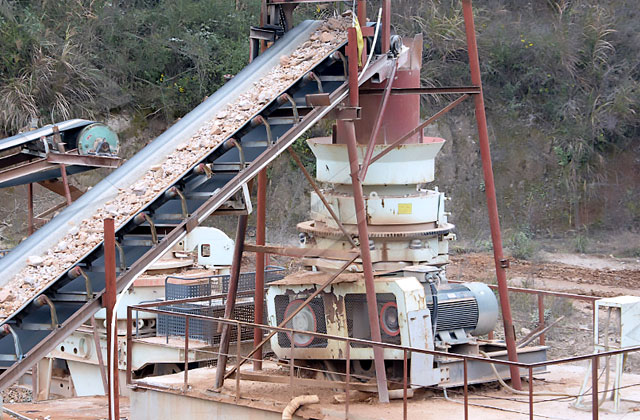When considering a crusher for a limestone aggregate quarry, several factors come into play that influence the selection of the right equipment for optimal performance. Limestone, a versatile material widely used in construction, landscaping, and various industrial applications, necessitates specific processing techniques to produce high-quality aggregates. Understanding the properties of limestone, the quarry’s operational needs, and the type of crusher best suited for the job is essential for achieving efficiency and profitability.
Limestone is primarily composed of calcium carbonate and has a relatively low hardness, which makes it easier to crush compared to harder rocks. However, its variable texture can lead to challenges during processing. Different types of crushers, such as jaw crushers, impact crushers, and cone crushers, offer distinct advantages for limestone processing. Jaw crushers are effective for primary crushing, providing a coarse product suitable for further processing. In contrast, impact crushers excel in producing a fine aggregate, ideal for asphalt and concrete applications, by using high-speed impact to break down the material.

In addition to the type of crusher, factors such as capacity, feed size, and desired output gradation are crucial considerations. A limestone aggregate quarry may require a crusher with a high throughput to meet demand, especially during peak production times. For instance, a crusher that can handle large feed sizes will minimize pre-crushing and enhance overall operational efficiency. Moreover, the ability to adjust the output size and produce multiple grades of aggregate in a single pass can significantly reduce the need for additional processing equipment, saving both time and cost.
The operational environment of the quarry also plays a significant role in selecting the appropriate crusher. Factors such as site accessibility, the presence of other equipment, and the layout of the processing plant can impact the installation and operation of the crusher. For example, mobile crushers are often preferred in limestone quarries with multiple sites, as they can be easily relocated to meet changing production needs. Additionally, considering maintenance and serviceability is critical; crushers that are easy to maintain can minimize downtime and improve productivity.
Lastly, when setting up a limestone aggregate quarry, it’s essential to consider the overall crushing plant design. The integration of different types of crushers, along with screening and conveying systems, can significantly impact the efficiency of the operation. Properly designed and maintained systems can ensure smooth material flow, reduce downtime, and improve the quality of the final product. Additionally, selecting crushers with the right capacity and specifications based on the anticipated production requirements will help in achieving optimal performance while minimizing operational costs. In conclusion, the choice of a crusher for a limestone aggregate quarry is critical, and understanding the advantages of different types of crushers can lead to successful quarry operations.
